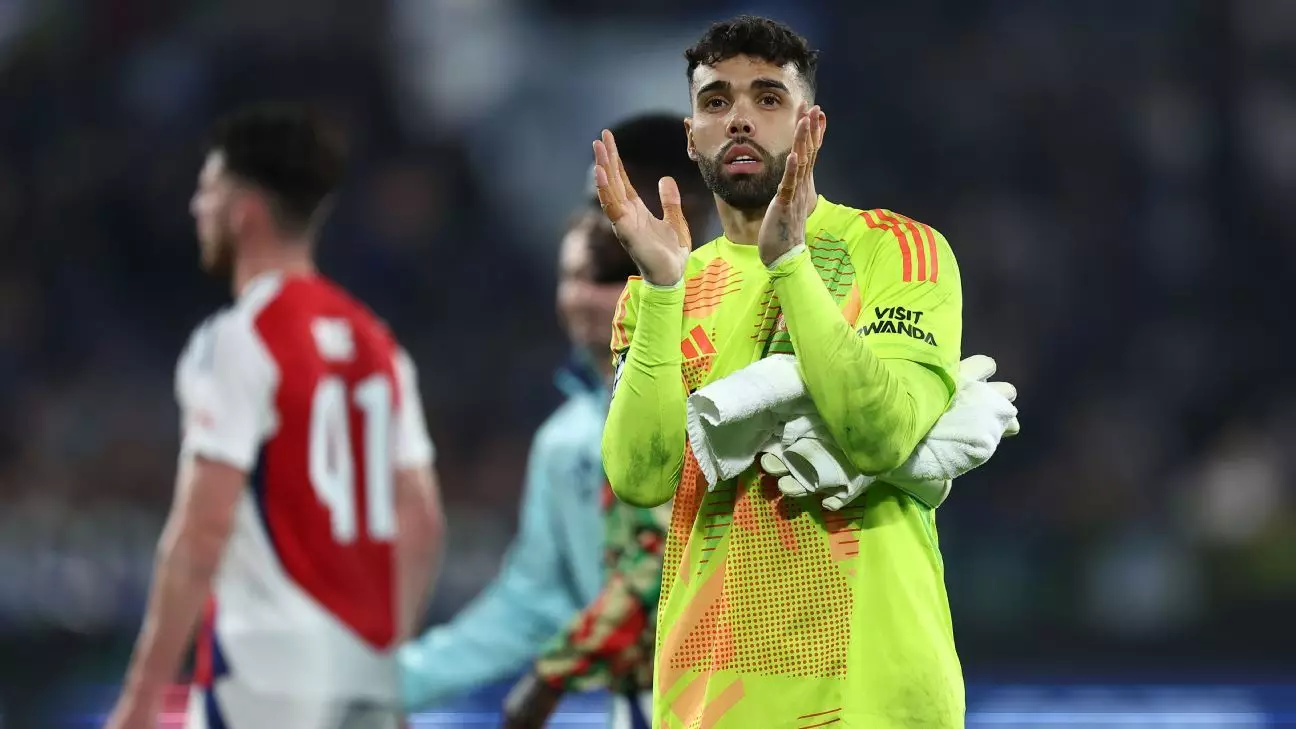On a cool evening in Bergamo, Arsenal commenced their UEFA Champions League journey with a draw against Atalanta, ending the match at 0-0. This fixture showcased the defensive strengths of both teams, as neither side was able to take a firm grip on the game or create significant scoring opportunities. The defensive-minded strategies employed by both managers allowed for a cautious approach that ultimately led to a stalemate.
First-half action was scarce, with Arsenal’s Bukayo Saka’s free-kick standing out as the primary moment of danger. Saka’s attempt, though forcing a save from the Atalanta goalkeeper, highlighted the lack of creative chances in the opening 45 minutes. Conversely, Arsenal’s Gabriel Martinelli made his presence felt with a shot that soared over the goal—a welcome but underwhelming effort that epitomized the match’s lack of clarity in front of goal.
As the second half commenced, a pivotal moment arose when Thomas Partey fouled an Atalanta player, resulting in a penalty. In a tense moment, David Raya stepped up and delivered an extraordinary performance, saving what could have been a crucial goal by denying Mateo Retegui not just once, but making a subsequent save during the rebound. This double save was arguably the night’s standout moment, reflecting Raya’s composure and skill under pressure.
Atalanta continued to threaten with long-range efforts, particularly from Juan Cuadrado who came close on two occasions. Yet, it was Arsenal who had the best chance to steal the victory late in the match. Substitute Raheem Sterling threaded the needle with a clever pass to Martinelli, who unfortunately squandered the opportunity by shooting wide. The missed chance seemed to encapsulate Arsenal’s overall performance—a tangible inability to finish decisive opportunities.
Despite the absence of goals, both teams exhibited strong defensive performances. Arsenal’s backline remained organized and disciplined, limiting Atalanta’s opportunities significantly. The likes of William Saliba and Gabriel managed to neutralize Atalanta’s key players, including playmaker Charles De Ketelaere, ensuring that the hosts could only muster limited threats from distance.
Arsenal manager Mikel Arteta demonstrated foresight with his substitutions. Bringing on Sterling injected some dynamism into the Gunners’ attack, which had been stagnant for much of the match. Though the pressing matters of scoring eluded them, the substitutions hinted at Arteta’s strategic thinking and adaptability as a coach.
Evaluating player performances, goalkeeper David Raya earned considerable praise for his key saves and quick reactions, earning him an 8 out of 10 rating. Conversely, while Arsenal’s defenders largely performed well, midfielders like Thomas Partey and forwards such as Gabriel Jesus struggled to impact the game significantly. Partey’s mistake in conceding a penalty overshadowed his contributions, resulting in a modest rating of 5 for him.
Gabriel Martinelli, who was cited as missing Arsenal’s best chance of the game, also faced criticism for his inability to convert opportunities. With a rating of 5, it was evident that there needed to be a high level of finishing from Arsenal’s attack to complement their solid defensive foundation. Bukayo Saka similarly had a quiet game, represented by a low score of 5.
Defensive midfielder Declan Rice performed admirably, showcasing a strong understanding of positioning and tactical awareness, contributing positively to the team’s overall structure and flow.
The draw against Atalanta, despite being a frustrating outcome for a team looking to make a statement in the Champions League, offers a foundation to build upon. Defensive solidity can be a cornerstone for success, and with time, the attacking unit may find their rhythm and enhance their goal-scoring capabilities.
As the tournament progresses, Arsenal must refine their strategies, focusing on creating a more fluid attack that can capitalize on even the slightest defensive frailties of their opponents. For now, however, a point away in Bergamo provides something to build on as they navigate the challenging group stage of European football’s premier tournament.

